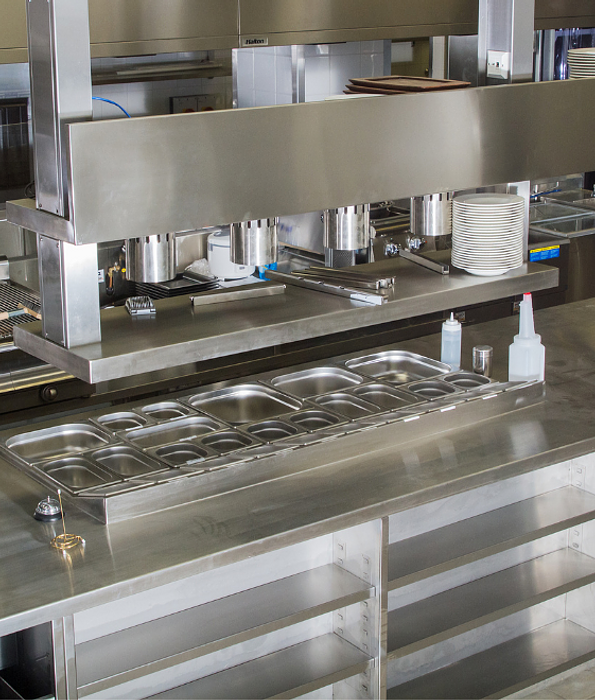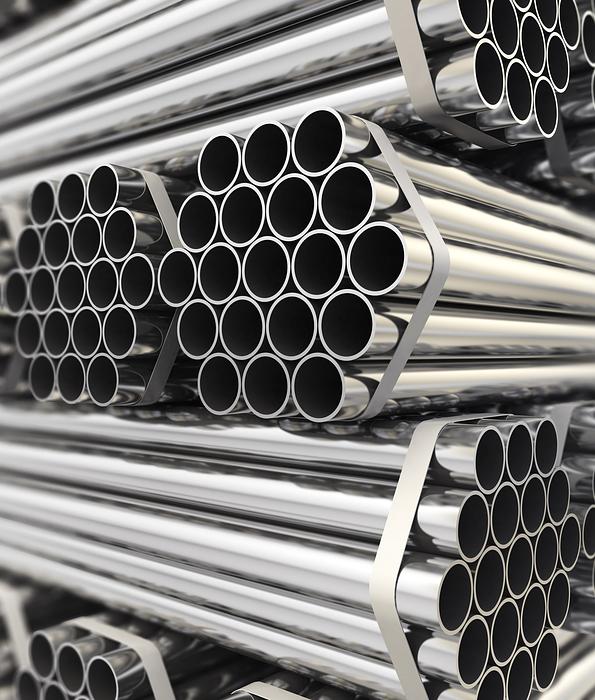Is Stainless Steel Magnetic?
As the name suggests, stainless steel is resistant to both staining and corrosion, meaning it’s extremely easy to keep clean. This, alongside its strength and durability, is the primary reason it’s such a popular material for all kinds of industries and applications. However, that doesn’t answer the question: “is stainless steel magnetic?”
In truth, this query is far trickier to resolve. That’s because there are various different types of stainless steel. Depending on the concentration of different metals in their composition, some of them are magnetic and some are not. As such, it’s important to verify whether magnetism is a priority for you, then make your decision on which type and grade to purchase for your project.
If that all sounds a little confusing, don’t worry. In the article below, we’ll give you a comprehensive overview of the issue in simple and easy-to-understand terms.
Article in brief
The concentration of the metals in stainless steel affects its magnetism
There are three main types of stainless steel - austenitic stainless steel, ferritic stainless steel and martensitic stainless steel
There are dozens of grades of stainless steel, including 409, 410, 420, 430, 439 and 440, which are magnetic
Understanding which attributes are important for your purposes will determine the type of stainless steel you require
The Metal Store stocks a range of stainless steel options
What is stainless steel?
Stainless steel is a metal alloy containing a blend of carbon, chromium, iron, nitrogen, manganese and silicon. While the exact variations of these substances will vary between grades of stainless steel, there are certain thresholds that they must meet in order to qualify the steel as stainless.
For example, the carbon content of the alloy cannot exceed 1.2%, while it must contain at least 10.5% chromium. If it does not, it is steel, but it is not stainless steel. That’s because chromium (mixed with nickel) is the key factor in preventing the metal from rusting, creating its stainless qualities.
Having said that, stainless steel is not completely impervious to rust. This is because the iron content of the alloy can eventually rust if given enough time and exposure. However, the act of adding chromium to the alloy - a process called passivation - greatly slows this corrosion down and extends the life of the alloy.
Is stainless steel magnetic?
Today, there are almost 60 different grades of standard stainless steel alloy, each of which has been developed to accentuate different attributes. What’s more, manufacturers are creating new customised blends all the time, so it’s easy to see why there is such variation from one grade to another.
Having said that, stainless steels can be broadly divided into three main categories. These are austenitic stainless steel, ferritic stainless steel and martensitic stainless steel. So, how do these types of steel relate to the question, “is stainless steel magnetic?” Well, in order for a stainless steel to be magnetic, it must:
- Contain iron
- Possess a ferritic or martensitic crystal structure
Generally speaking, ferritic stainless steels are magnetic. This is due to the high levels of ferrite (a compound of iron and other elements), which gives the material its magnetic qualities. While some ferritic stainless steels only give off a weak magnetic field, grades such as 409, 430 and 439 are magnetic stainless steels.
There are a number of different grades of martensitic stainless steels, three of which (410, 420 and 440) are magnetic. This is because iron is the main component in the alloy, creating a ferromagnetic crystal structure which creates the magnetic field. The carbon content of martensitic alloys means they can be hardened for extra strength, but this involves a trade-off with reduced chemical resistance compared to other grades.
Because austenitic stainless steels generally contain more austenite than ferrite, they are usually non-magnetic. Although grades like 304 and 316 do contain iron, their crystal structure does not lend itself to magnetism. Having said that, austenitic alloys can be treated (by bending, drilling or heating) to form ferrite, making them partially magnetic.
Which is the right type of stainless steel for you?
To understand which grade of stainless steel will best serve your purposes, it’s first important to think about what you require from it. For industrial applications, strength and chemical- or corrosion-resistance might be the priority. In kitchen environments, its ability to withstand high temperatures, humidity levels and acid exposure could be paramount. For other projects, magnetism may be the deciding factor.
Once you know what you’re looking for from your stainless steel, you can then begin the process of elimination for which grade to choose. That’s because some types of the alloy are better at certain jobs than others. For example, austenitic alloys rarely offer magnetism, but they compensate for that by providing greater strength. Even within the grades, there are differences. For example, some (like 316) are better at withstanding water exposure than others (304).
The best course of action may be to make a list of the properties you prioritise in stainless steel, then cross-reference that against the different attributes of each grade. Of course, that potentially means a substantial amount of legwork, which is why it can help to seek advice from trained professionals, who can use their expertise to choose the right alloy for you.
The Metal Store is here to help
At The Metal Store, we offer a wide range of different stainless steel products, from tubes, rods and bars to sheets, splashbacks and mirrors. Most of our products are constructed from grade 304 stainless steel, but we do also stock other options, such as 303 and 316. Plus, for all your magnetic needs, including stainless steel magnetic boards, there’s 430.
Best of all, we provide a free cutting service on all of our stainless steel products, so you can get the perfect fit for your requirements. Simply choose the type of stainless steel you need (magnetic or not), measure up its dimensions and leave the rest to us. We aim to fulfill all orders within one or two days of receiving them.
To learn more about the products we offer, browse our online catalogue and place your order today. Or, if you require more input or advice from our experienced team, you can give us a call on 01274 875 479 or send an email to [email protected]


